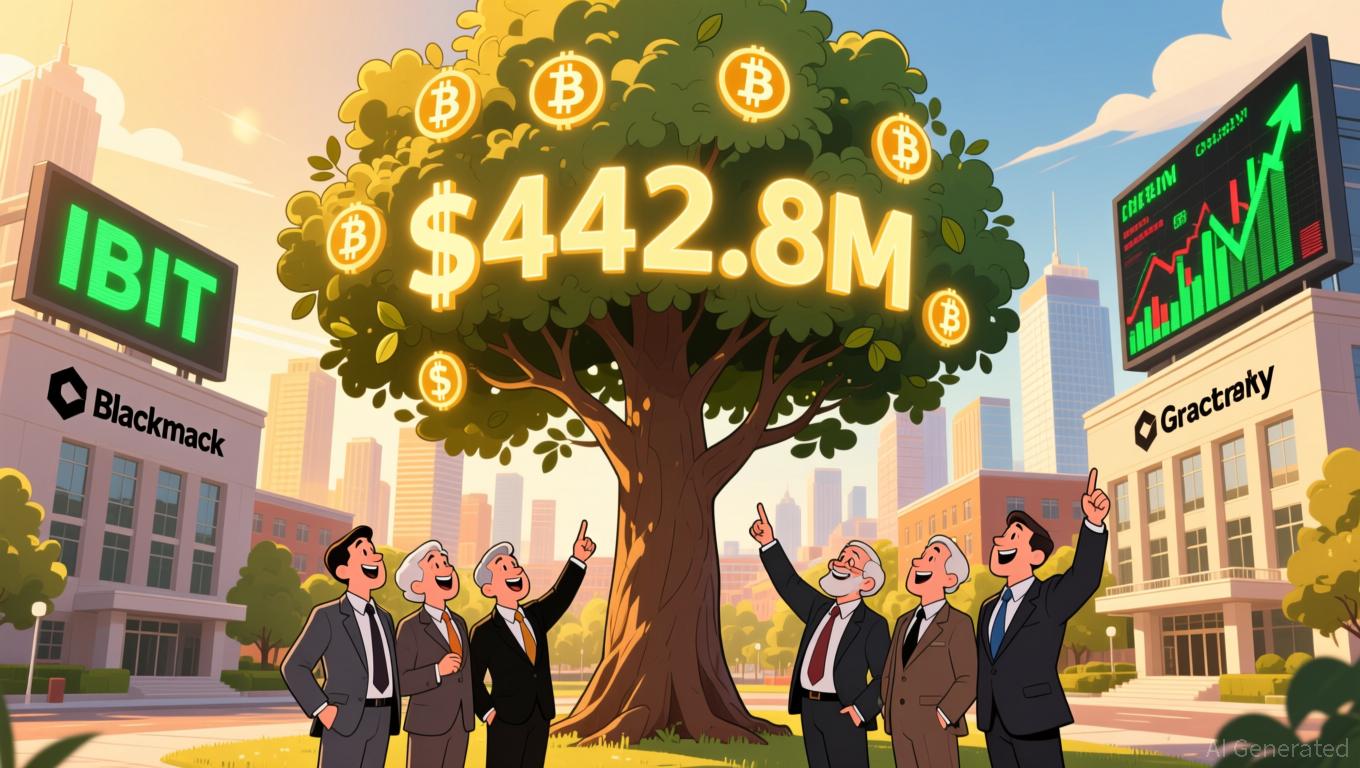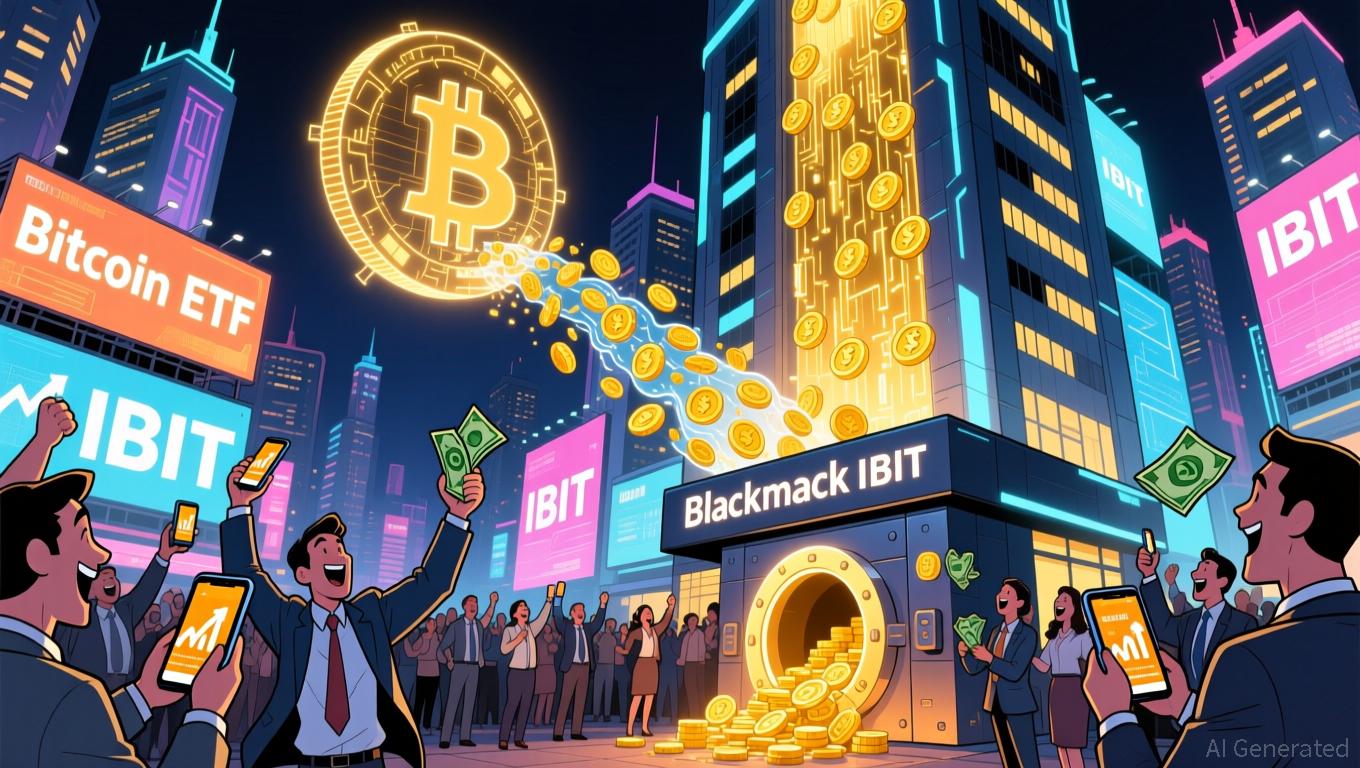Ethereum Updates: HyperUnit's $55 Million Crypto Wagers Withstand $1.1 Billion Liquidation Surge
- Ethereum fell below $3,400 on Nov 4, 2025, marking its first annual negative performance since 2025, while Bitcoin neared $100,000 support. - A $110M Balancer hack and Fed Chair Powell's hawkish comments triggered $1.1B in crypto liquidations, wiping out 303,000 traders' positions. - Whale HyperUnit defied the selloff by buying $37M Bitcoin and $18M Ethereum, contrasting with the Crypto Fear & Greed Index hitting 21. - Analysts debate Ethereum's $3,000 support and Bitcoin's $106,600 level, with market st
On November 4, 2025, Ethereum (ETH) dropped below $3,400, recording its first year-to-date loss since the beginning of 2025, when it started trading around $3,353, as reported by a

According to an
During this period of volatility, a well-known crypto whale called HyperUnit has been actively buying. This trader, who previously made $200 million by correctly anticipating the October crash, has opened $37 million in Bitcoin and $18 million in
Bitcoin’s movement is crucial for the entire crypto sector. A fall below $100,000 could trigger widespread stop-losses and intensify bearish sentiment. On the other hand, a recovery above $106,600 may indicate a short-term bottom, especially if institutional investors keep buying. For Ethereum, the $3,000 level is a significant psychological threshold; if it fails to hold, the price could revisit its 2024 lows around $2,800.
Disclaimer: The content of this article solely reflects the author's opinion and does not represent the platform in any capacity. This article is not intended to serve as a reference for making investment decisions.
You may also like
Bitcoin Updates: Harvard’s Investment in Bitcoin Challenges Previous Doubts as More Institutions Join
- Harvard University tripled its Bitcoin stake in IBIT, now holding $442.8M in the ETF, making it the fund's 16th-largest holder. - The move defies past skepticism from Harvard economists like Kenneth Rogoff, who once predicted Bitcoin would fall to "$100 rather than $100,000". - Institutional adoption grows as Abu Dhabi's Al Warda and Emory University also boosted Bitcoin ETF holdings, despite recent market volatility and outflows. - Harvard's 0.6% Bitcoin allocation in its $57B portfolio highlights crypt

Bitcoin Updates: Bitcoin Drops, Harvard's $364 Million ETF Investment Shows Institutional Commitment
- Harvard University increased its BlackRock IBIT Bitcoin ETF stake by 257% to $364.4M, becoming a top institutional holder. - The $50B endowment also doubled gold ETF holdings, treating both assets as inflation hedges amid macroeconomic uncertainty. - Emory and Abu Dhabi's Al Warda similarly boosted crypto-linked ETFs, signaling institutional confidence in regulated digital assets. - Analysts highlight Harvard's ETF adoption as rare validation, with U.S. spot Bitcoin ETFs attracting $60.8B in inflows sinc

Astar 2.0's Tactical Rollout and Its Impact on DeFi Advancements
- Astar 2.0 introduces institutional-grade DeFi architecture with 6-second block times and 150,000 TPS via Polkadot's async protocol. - Cross-chain interoperability with LayerZero/CCIP enables seamless asset transfers across Ethereum , BSC, and Polkadot ecosystems. - Strategic partnerships with Mizuho Bank, Casio, and Japan Airlines demonstrate real-world applications in CBDCs, logistics, and digital rewards. - $3.16M institutional ASTR purchase and 20% QoQ wallet growth highlight growing confidence in its

TWT's Updated Tokenomics Structure and Its Impact on the Market: Exploring Investment Prospects in the Latest Tokenomics Innovations
- TWT's tokenomics remain opaque, contrasting with transparent reforms by Aster DEX and structured supply management by Monad. - Institutional adoption rises via privacy-focused tokens like Franklin Templeton's Benji and yield-driven JPM Coin, reshaping crypto investment. - Effective tokenomics now prioritize transparency, supply locks, and institutional alignment to build trust and mitigate volatility risks. - TWT faces challenges in differentiation without clear disclosures, risking obsolescence amid reg
